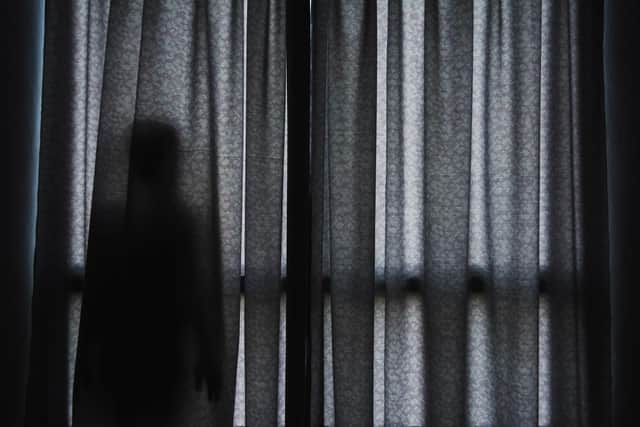Over 70 potential victims of modern slavery referred to Hertfordshire Police last year
and live on Freeview channel 276
Home Office figures show 75 potential slavery and trafficking victims were referred to Hertfordshire Police through the National Referral Mechanism (NRM) – the UK’s apparatus for identifying and supporting victims – between January and September last year.
In the UK, 7,576 potential slavery and trafficking victims were referred. That is the equivalent of 28 every day, and was an increase of 4.2 per cent on the same period in 2019 – despite fears the coronavirus pandemic could push slavery networks and their victims further underground.
Advertisement
Hide AdAdvertisement
Hide AdIn Hertfordshire, more than half of the referrals concerned children aged 17 or under, or adults exploited as children - 49 cases.


In the first three months, 27 referrals were made, 18 concerned children and eight concerned adults. In the second quarter, 20 of the referrals made concerned children and 10 concerned adults. In the next three months, 11 referrals made to Hertfordshire Police concerned children, and five concerned adults.
Hertfordshire Police made fewer referrals compared to 2019, when 84 were made.
But charities say the NRM figures are an underestimate of the true extent of slavery in the UK, as adults need to consent to a referral.
Advertisement
Hide AdAdvertisement
Hide AdIt also relies on designated first responders such as police and councils being aware of the programme and how to refer victims – something the Human Trafficking Foundation says is lacking.
In Hertfordshire, the force has a dedicated modern slavery unit, Operation Tropic.
A spokesperson for Hertfordshire Constabulary said: “Human trafficking and modern slavery are complex issues that are widely believed to be under-reported throughout the UK.
"The nature of the offences often mean that victims are extremely vulnerable and being controlled, as a result they may be reluctant or unable to seek help from authorities.
Advertisement
Hide AdAdvertisement
Hide Ad“The force has a dedicated modern slavery unit, Operation Tropic, set up some years ago to support investigations and work with other law enforcement agencies to protect victims and bring offenders to justice.
“Through the Hertfordshire Modern Slavery Partnership, the force has also built working relationships with more than 40 other agencies to tackle these issues in a coordinated way.
"As a result frontline staff and professionals working throughout the county have received training on how to spot the signs that someone is being exploited.”
A recent study in the Cambridge Journal of Evidence Based Policing, which examined cases of Vietnamese nationals arrested for cannabis cultivation in Surrey and Sussex, found police demonstrated “ignorance” and a lack of awareness of modern slavery.
Advertisement
Hide AdAdvertisement
Hide Ad“Even when officers had concerns about modern slavery, no appropriate crime was recorded and no formalised investigation followed,” the study said.
It added that none of the three Vietnamese nationals examined in depth had told police they were victims despite later telling academics stories “consistent with their having been trafficked and subjected to debt bondage”.
“It really is a training issue,” says Tamara Barnett, director of the Human Trafficking Foundation, which brings together charities and parliamentarians to tackle slavery.
“The Government has done a little bit and published an online training tool for first responders but really it needs face to face training, and it’s not statutory this training.
Advertisement
Hide AdAdvertisement
Hide Ad“I’ve gone into rooms with police and social workers who have statutory duties as the Modern Slavery Act says to identify victims and I’ll ask how many know about the NRM and I might only get a few hands sometimes. So you have a whole room full of people who have no idea.”
The NRM figures refer to potential victims. Once referred, the Home Office will make a ‘reasonable grounds decision’ to determine if the person is likely a victim.
When asked about a lack of training for police officers, the Home Office said it had allocated £2 million this year to support police tackle modern slavery and had invested £11.3 million in the Modern Slavery Police Transformation Programme in the last three years.